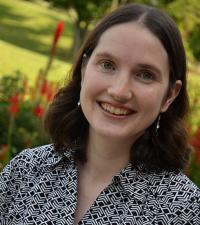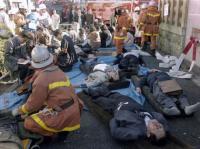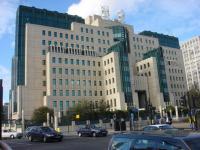-
U.S. police departments can clear more homicides
Only about 65 percent of homicides in the United States are solved — down 15 percent from the mid-1970s — but a new examines how some police departments are getting it right. Bottom line: There is no silver bullet to reversing the steady decline in the homicide clearance rate.
-
-
Calif. Muslim woman sues Long Beach police for forcibly removing her headscarf
Kirsty Powell, an African American Muslim woman, has on Monday sued the police in California, charging that her headscarf, which she was wearing for religious reasons, was forcibly removed by officers after she was arrested on outstanding warrants. The suit states that Powell “suffered and continues to suffer extreme shame, humiliation, mental anguish and emotional distress” as a result of her experience at the police station.
-
-
EU should establish U.S.-style intelligence agency: EU president
The terrorist attacks in Paris and Brussels, just as the earlier ones in Madrid (2004) and London (2005), were a reminder that central pillars of the EU, such as the “area of freedom, security, and justice,” are being challenged. Jean-Claude Juncker, president of the European Commission — the executive branch of the European Union (EU) – said that the EU member states’ mindsets and willingness to cooperate – crucial ingredients in the fight against terror – have not lived up to the challenge. The enduring lack of coordination between security services, police, and judicial authorities, at the national and the European levels, needs to be urgently tackled to reduce Europe’s vulnerability to such risks. To address and resolve these problems, and bolster European security in the face of terrorism, Juncker has proposed a European “Security Union.”
-
-
New Yorker sentenced to 16 years for trying to buy ricin
It was a scary scenario: Chinese national Cheng Le, living in New York City, attempted to order ricin through the so-called dark Web. Ricin is a highly potent and potentially fatal toxin with no known antidote. What did Le plan to do with the ricin? Nothing good. According to U.S. Attorney for the Southern District of New York Preet Bharara, “In Le’s own words, established at trial, he was looking for ‘simple and easy death pills’ and ways to commit ‘100 percent risk-free’ murder.”
-
-
Four questions Belgians should ask about the Patriot Act

The Paris and Brussels terrorist attacks added a sense of urgency to calls for Belgium to enact its own counterterrorism bill. It is a call the French government has already answered. Increased use of surveillance is a worldwide trend. There is no guarantee, however, that even with the most sophisticated surveillance technology out there today, passing a bill or law to collect private information on citizens will protect us from terrorist threats and violence. Even more vexing: the nature of intelligence gathering means we may never know exactly how many attacks have been prevented by the Patriot Act, the French surveillance law — or a similar law that Belgium may soon pass.
-
-
Do gun-restriction laws help reduce gun deaths?
Researchers looked at the associations between firearm-related laws and firearm homicides, suicides, and unintentional injuries and deaths. The study is the first to explore the evidence from around the world on gun laws and gun violence to determine whether gun restrictions help reduce gun deaths. While the research did not conclusively prove that restrictions, or relaxation of laws, reduce gun deaths, the results indicate that gun violence tended to decline after countries passed new restrictions on gun purchasing and ownership.
-
-
Montenegro expels 58 members of Japanese doomsday cult Aum Shinrikyo

Montenegro has expelled fifty-eight foreigners, all members of the Japanese doomsday cult Aum Shinrikyo which, in March 1995, launched a deadly nerve gas attack on Tokyo’s underground. Twelve people were killed and thousands injured in Aum Shinrikyo’s nerve gas attack on a Tokyo commuters.
-
-
Flexible security solution makes life difficult for burglars
Ideally, homeowners want to be warned if a burglar sneaks onto their property, and farmers want to know if horses or sheep are no longer in the paddock or field they were left grazing in. Experimental physicists at Saarland University have developed a flexible security solution that can be used in gardens, driveways, business premises, or on grazing land and in woodland.
-
-
Proposed bill would ban “burner” phones in the U.S.

Much of the recent debate revolved around terrorists using devices with end-to-end encryption. The terrorists who perpetrated the 13 November 2015 attacks in Paris used several encrypted phones – but three of them also used burner phones, concealing their communications by not having the owners’ names associated with the phones they used. Representative Jackie Speier (D-California) has proposed a bill which would ban burner phones in the United States.
-
-
U.K. could lose access to terrorism, crime databases if it leaves the EU: Europol

Rob Wainwright, the director of the EU’s police agency Europol, said that if Britain left the EU, it could lose access to important databases of terror and criminal suspects needed to fight ISIS. Wainwright said databases provided “daily” benefit to UK police in protecting borders. Leaving the EU would put intelligence cooperation in danger, he said.
-
-
Ted Cruz: Cancelled NYPD’s Muslim surveillance program could prevent terrorist attacks
Presidential candidate Ted Cruz criticized New York Mayor Bill de Blasio for shutting down the NYPD’s Muslim surveillance program. In the wake of the Brussels terrorist attacks, Cruz. suggested that to prevent such attacks in the United States, the police should patrol Muslim communities more heavily – and offered the NYPD program as an example of how such surveillance should be done. In 2014, the New York Police Department acknowledged that its surveillance program did not lead to any terror investigations. Police were not able to find a single lead.
-
-
Blacks believe police view them as “suspects first, civilians second”: Study
Most of the Ferguson protestors believed police view black people as worthless thugs and white people as innocent and superior — perceptions which, true or not, affect police-community relations in an era of persistent racial strife. “The protestors did not view police brutality and discrimination as an isolated phenomenon,” says a the researcher who conducted interviews with the protesters. “Rather, they believed that it’s reflective of broader social inequality and discrimination in society at large.”
-
-
Better tracking of police homicides
Official counts of homicides by police seriously undercount incidents, according to a study, but a relatively new national data system, currently in use in thirty-two states, could be a crucial tool for gathering more comprehensive information, say the researchers.
-
-
Three gun-safety laws in effect in some states could significantly reduce gun deaths
A nationwide study which analyzes the impact of gun-control laws in the United States has found that just 9 of 25 state laws are effective in reducing firearm deaths. The research suggests that three laws implemented in some states could reduce gun deaths by more than 80 percent if they were implemented nationwide. Laws requiring firearm identification through ballistic imprinting or microstamping were found to reduce the projected mortality risk by 84 percent; ammunition background checks by 82 percent; and universal background checks for all gun purchases by 61 percent. Nineother states laws — such as the so-called “Stand your Ground” laws — were associated with increased mortality.
-
-
Social media used to assess damage caused by natural disasters
A new study concludes that it is possible to determine the damage caused by a natural disaster in just a few hours by using data from social networks. “Twitter, the social network which we have analyzed, is useful for the management, real-time monitoring and even prediction of the economic impact that disasters like Hurricane Sandy can have,” says one of the researchers.
-
- All
- Regional
- Water
- Biometrics
- Borders/Immig
- Business
- Cybersecurity
- Detection
- Disasters
- Government
- Infrastructure
- International
- Public health
- Public Safety
- Communication interoperabillity
- Emergency services
- Emergency medical services
- Fire
- First response
- IEDs
- Law Enforcement
- Law Enforcement Technology
- Military technology
- Nonlethal weapons
- Nuclear weapons
- Personal protection equipment
- Police
- Notification /alert systems
- Situational awareness
- Weapons systems
- Sci-Tech
- Sector Reports
- Surveillance
- Transportation
Advertising & Marketing: advertise@newswirepubs.com
Editorial: editor@newswirepubs.com
General: info@newswirepubs.com
2010-2011 © News Wire Publications, LLC News Wire Publications, LLC
220 Old Country Road | Suite 200 | Mineola | New York | 11501
Permissions and Policies
Editorial: editor@newswirepubs.com
General: info@newswirepubs.com
2010-2011 © News Wire Publications, LLC News Wire Publications, LLC
220 Old Country Road | Suite 200 | Mineola | New York | 11501
Permissions and Policies
